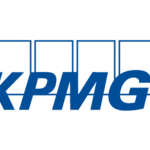The Solicitors Regulation Authority (SRA) has begun an evaluation of financial data gathered from 2,000 law firms after warning earlier this summer that an increasing number of the UK’s 11,000 law firms face financial collapse due to a ‘toxic combination of factors causing a perfect storm’. Elsewhere, the latest report from KPMG reveals the total bill for winding down Cobbetts currently stands at nearly £1.7m.
In June this year, the SRA announced that 160 firms across England and Wales were under intensive supervision due to the state of their finances and within that, eight were the subject of real concern. The strain was attributed to a variety of predictable reasons including legal aid cuts, prohibition of personal injury referral fees, a tougher stance from banks on lending and the sustained economic downturn.
The SRA contacted around 2,000 firms individually in August, requesting key financial information in an attempt to build a picture of the issues facing firms so as to ‘target resources through its financial stability programme,’ an SRA statement said yesterday (18 Sept).
The SRA requested data on net profit (at the last financial year end), total borrowings, and highest and lowest bank balances for each of the last three months. Firms included in the survey include those working in practice areas facing heavy economic pressure, such as personal injury or legal aid and around 500 firms it considers ‘high impact’.
Firms which come under the SRA’s ‘high impact’ radar come from the top 200 firms in the UK, including Magic Circle and major City firms, which could cause far-reaching consequences if they suffered financial demise.
This group then widens to the UK’s top 500 firms, which the SRA consider to be part of the food chain and dependent on work outsourced from the larger, more profitable firms in the top 200.
Of the firms contacted, around 700 were already actively being supervised by the SRA through its relationship management programme, while the regulator contacted the compliance officer for legal practice (COLP) at the remaining 1,300 firms by email.
Of the 1,300 emailed, around 1,000 firms supplied the requested information or applied for an extension by the 3 September deadline. Of the firms that responded, around 50 per cent did not score at all on any of the financial indicators so far, ‘suggesting there is no evidence of financial difficulty requiring engagement at this stage’.
However, that leaves around 500 firms demonstrating indicators of financial difficulty, in addition to the 700 firms already being supervised by the regulator, meaning that over 10% of UK law firms could be experiencing some form of financial hardship.
Mike Haley, director of supervision at the SRA, said: ‘We contacted these firms not because we know they are experiencing financial difficulties, but to build our understanding of the current position so that we can target our resources at those who most need our help. Engaging with firms at the earliest opportunity is the best thing to do, and this will allow us to know where we need to do this.’
‘We’ve already had numerous examples of better outcomes for firms and clients when firms in financial difficulty have come to us. By surveying firms in this way, we are able to make our approach even more risk-based, and hopefully avoid the disruption caused by intervention.’
The recent financial failure of regional firm Cobbetts, which has since been swallowed by DWF in a £3.9m pre-pack deal earlier this year, and more recently Midlands-based Challinors, which went into administration in August, has served as a wake-up call to the legal profession where the risk of demise is more acute than ever before.
With many practices suffering a turbulent year in 2012/13, forcing deeper consolidation between UK firms, many commentators have expected further casualties, adding to a string of law firm collapses since the demise of Halliwells in 2010 up to Cobbetts and Scots firm Semple Fraser this year.
The business of winding down law firms is also costly, as the total bill for Cobbetts’ administration was unveiled by a KPMG report last week to stand at £1.7m, with Pinsent Masons taking a slice worth £169,367 of the £352,289 in legal fees.
The progress report, prepared by administrators Mark Granville Firman, Brian Green and Howard Smith, also showed time costs of the administration worth £607,846, representing 1,856 hours at an average rate of £328 per hour.
sarah.downey@legalease.co.uk














